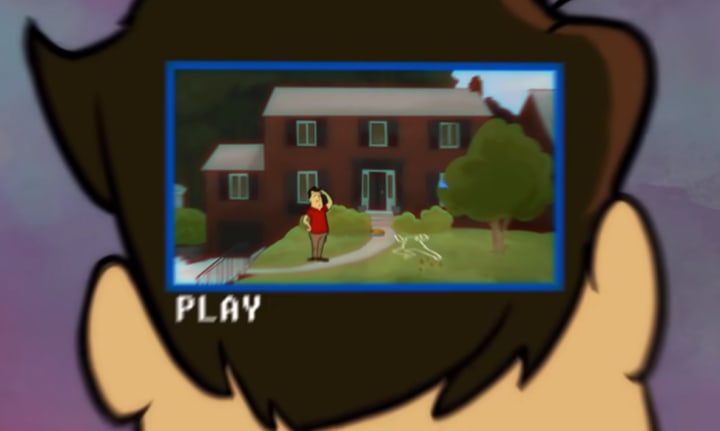How Your Memory Works
Is our memory limited, like the storage capacity of a computer? Or is our memory unlimited? And if we did have perfect memory, what would life be like if you never forgot anything?

Sherlock Holmes, the renowned detective, believed that the brain is like an attic with limited storage for memories. He prioritized filling the attic with important details, such as identifying differences between lethal poisons, rather than cluttering it with random facts and trivia. But was Holmes correct? Is our memory capacity limited, akin to a computer's storage, or is it unlimited? And what would life be like if we had perfect memory and never forgot anything?
In the animated film Inside Out, memories were depicted as glowing spheres stacked in the brain, resembling books in a library. However, the reality is more complex. Memories are not confined to a single location in the brain but are scattered throughout various regions. Multiple brain cells work together to form a single memory. For instance, recalling the memory of eating grandma's apple pie involves different brain cells responsible for visualizing the pie's appearance, recalling the aroma of cinnamon, and remembering the delightful taste.
In truth, memories are not physical entities residing in specific brain cells; they are actions rather than objects. Just as "the wave" at a baseball game occurs when fans coordinate their movements in a specific order, a memory is formed when interconnected neurons fire in a specific pattern. Since the same cells can fire in numerous unique patterns, a group of neurons can encode multiple memories, thereby expanding the brain's memory storage capacity.

Deep within the brain lies a seahorse-shaped group of cells known as the hippocampus, which plays a crucial role in memory formation. One famous patient, referred to as H.M., had most of his hippocampus removed during epilepsy surgery in 1953. Although he developed a severe form of amnesia and could not form new memories, he could still recall information learned before the surgery. This demonstrated that the hippocampus is essential for memory formation but not the storage site of memories.

So, how do experiences transform into memories? By observing a mouse's brain in a maze, we can create a map indicating which brain cells are active during the mouse's experience. Later on, the same pattern of brain cell activity replays in fast forward, reinforcing the connections between cells through consolidation. This process, known as consolidation, enables animals, including humans, to store new memories for the long term. Days or weeks later, a smell may trigger the same pattern of cell activity, resulting in the recall of maze-related memories in mice, similar to how the scent of cinnamon can evoke memories of grandma for us.
However, the brain's memory creation process is not foolproof. Sometimes, our mental replay of imagined scenarios can feel as vivid as real experiences. If we vividly imagine the sights, smells, and sounds of a crime scene based on someone's description, our brain's networks activate similarly to if we had actually been there. The more we replay the scene in our minds, the more it becomes ingrained as a real memory. This is why leading questions from detectives can unintentionally implant false memories in witnesses.
While we are capable of remembering a great deal, we also forget much more. Forgetting can occur naturally or be intentional. Three different types of forgetting exist. The first type is passive forgetting, where memories gradually fade over time due to the weakening of connections between brain cells or the loss of triggers needed to retrieve them. The second type is targeted forgetting, which occurs during sleep when random, useless information is cleared out, and outdated memories are erased. The third type is motivated forgetting, where individuals purposely suppress unpleasant memories to regulate their emotions and focus on the present.

Forgetting is a vital process in our brains. It allows us to move past traumatic events and clear out irrelevant information. If our brains didn't discard unnecessary memories, we would overflow with random and useless trivia, just as Sherlock Holmes predicted. Forgetting also enables us to update our understanding of the world by replacing outdated information with new knowledge.
In rare cases, individuals with hyperthymesia possess the ability to remember everything. Jill Price, a well-known case, has nearly perfect memory of her life from the age of 14 onward. However, this exceptional memory comes with downsides, as she is haunted by distressing memories and regrets, vividly recalling every choice she made and its outcome.
Although there are attempts to erase unwanted memories, our current methods are imprecise, more like a hammer than a scalpel. Forgetting, like remembering, is a complex and finely-tuned mechanism. If humans couldn't remember important events, our species likely wouldn't have survived. Forgetting is an essential part of navigating through life's mysteries.
So, while achieving perfect memory may be unlikely without significant brain injury, memorization alone is not the best way to learn. While memorizing can provide a starting point, true understanding requires a deeper approach, involving the exploration of relationships between concepts, considering different interpretations, and engaging with new information. These skills foster effective learning and knowledge acquisition.
In conclusion, our memory capacity is not confined to a finite limit, like a computer's storage. Memories are the result of intricate neural processes involving interconnected brain cells. Forgetting is a natural and vital aspect of memory, allowing us to move forward, clear out unnecessary information, and update our mental models of the world. While perfect memory may have its appeal, true learning involves more than memorization; it requires understanding, exploration, and critical thinking.






Comments (1)
What an interesting story